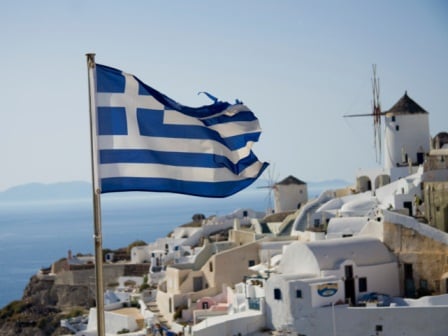Banking, finance, and taxes
Is There a New Greek Bank Nationalization Risk After IMF News?
Published:
Last Updated:
After news broke that Greece and the European Union were too far apart on a deal, it was one thing. Now Greece has decided to bundle its interest payments that are due in June. The nation notified the International Monetary Fund (IMF) that it plans to bundle all of its June payments, which means the IMF and other creditors will not receive payments until June 30. Source: Thinkstock
Source: Thinkstock
This means that some $1.7 billion or so is going to be bundled. Whether this was requested by the IMF or by the Greeks may not even matter. IMF payments were due June 5, June 12, June 16 and June 19. The good news here is that this is not a technical default because it is allowed under the rules. Still, it indicates that Greece may think this gives it some leverage.
National Bank of Greece S.A. (NYSE: NBG) is the U.S.-listed sentiment proxy stock of how investors feel about Greece on any given day. This American depositary share (ADS) was down only about 3% at $1.41 in New York trading on Thursday morning before the news broke, but things went from bad to worse there.
NBG shares closed down 8.2% at $1.34, against a 52-week range of $0.98 to $4.16. The trading volume was also over 12 million shares.
NBG’s short interest was 15.5 million in mid-May, but this was somehow down almost by half from just a month earlier. Shorting stocks with a $1 handle is not always easy to do.
What investors need to consider here is that Greece has a serious risk above and beyond just the ongoing debt negotiations. Those negotiations could literally go on for months or years, albeit on a stop-start-restart basis. That is because a no-confidence vote call creates new elections, and there is no assurance (or even a history against) that the new regime will abide by the prior regime’s signed contracts and documents.
ALSO READ: The Next Big Dividend Hikes You Can Bank On This Summer
This larger risk that bank investors in Greece face is bank nationalization. The Greek government could either seize the banks or they could seize assets.
Now consider that Greece’s socialists in charge have many party members and supporters who would be, at a minimum, at least sympathetic to such moves of desperation.
While outright nationalization is the ultimate risk, this plays a role into why Greek bank deposits have been falling. Those deposits have fallen to the lowest level in over 10 years. The European Central Bank recently showed that Greek bank deposits fell to €139.36 billion in April, down from €145.04 billion in March and from over €170 billion in late 2014.
Greek depositors know that their government could simply seize the banks. If so, there is no assurance that their deposits would be made whole. If you will recall, this took place in Cyprus. NBG is the only Greek bank that trades in the United States’ major equity exchanges.
The situation in Greece is still quite laughable. The socialists are playing a game, and the Europeans are letting them play it. Maybe what really needs to be asked is how you repossess or take collateral from a nation.
ALSO READ: 5 Stocks That Warren Buffett Should Sell
Is there a real nationalization risk here? Well, the answer is an open question. We will see.
Below is a snapshot of a Google search result (click image to enlarge) with the term “risk of Greece nationalizing banks” and we will let you be the judge.
Finding a qualified financial advisor doesn’t have to be hard. SmartAsset’s free tool matches you with up to 3 fiduciary financial advisors in your area in 5 minutes. Each advisor has been vetted by SmartAsset and is held to a fiduciary standard to act in your best interests. If you’re ready to be matched with local advisors that can help you achieve your financial goals, get started now.
Thank you for reading! Have some feedback for us?
Contact the 24/7 Wall St. editorial team.